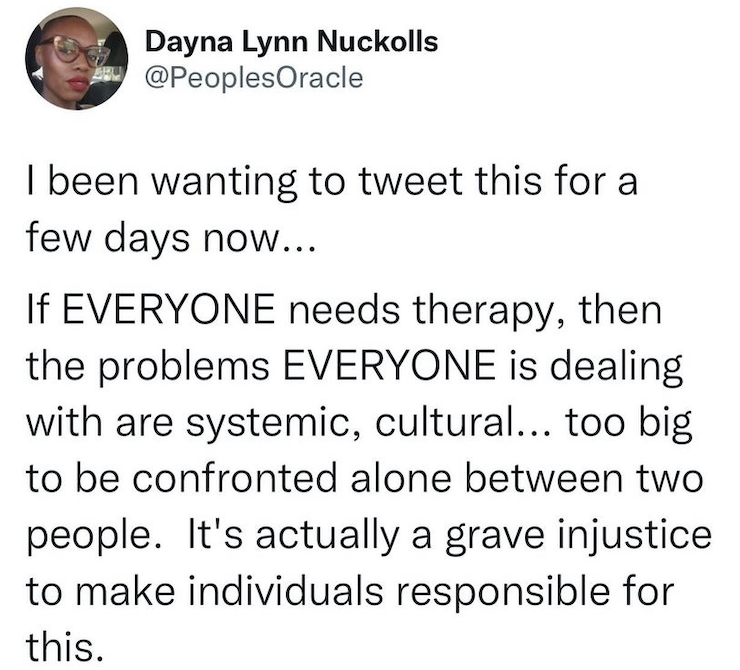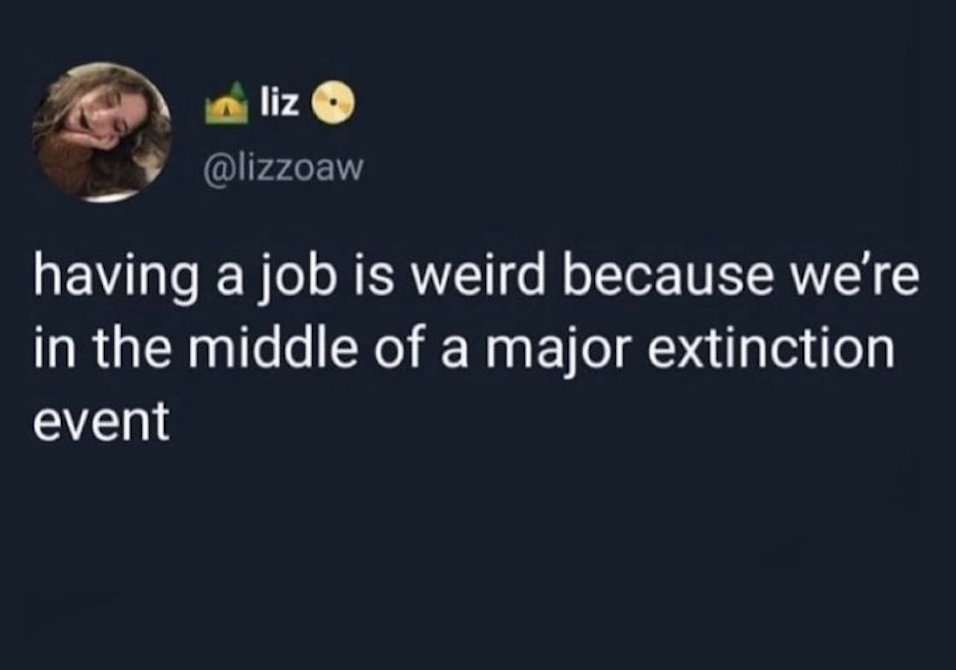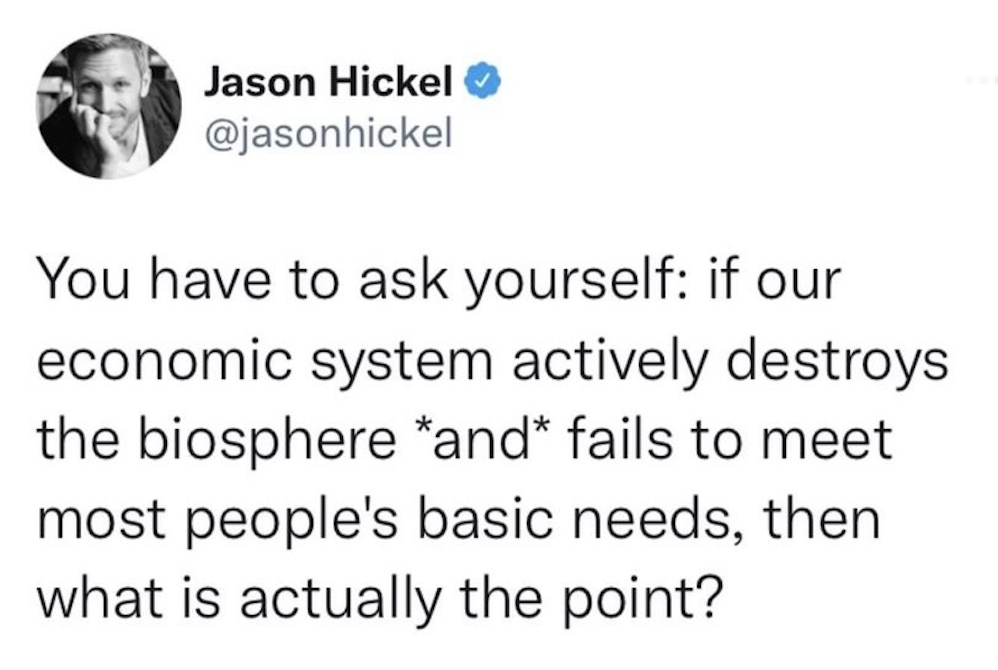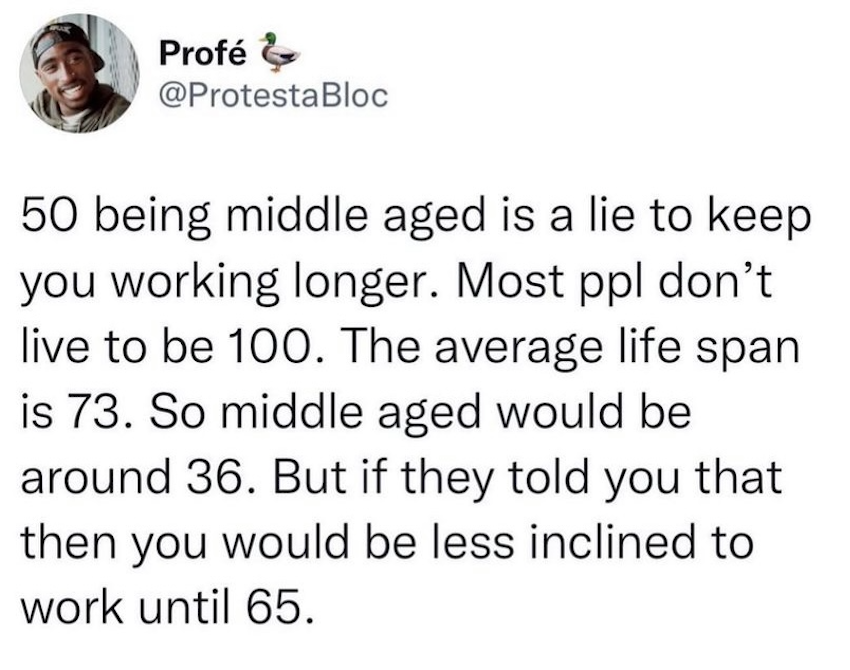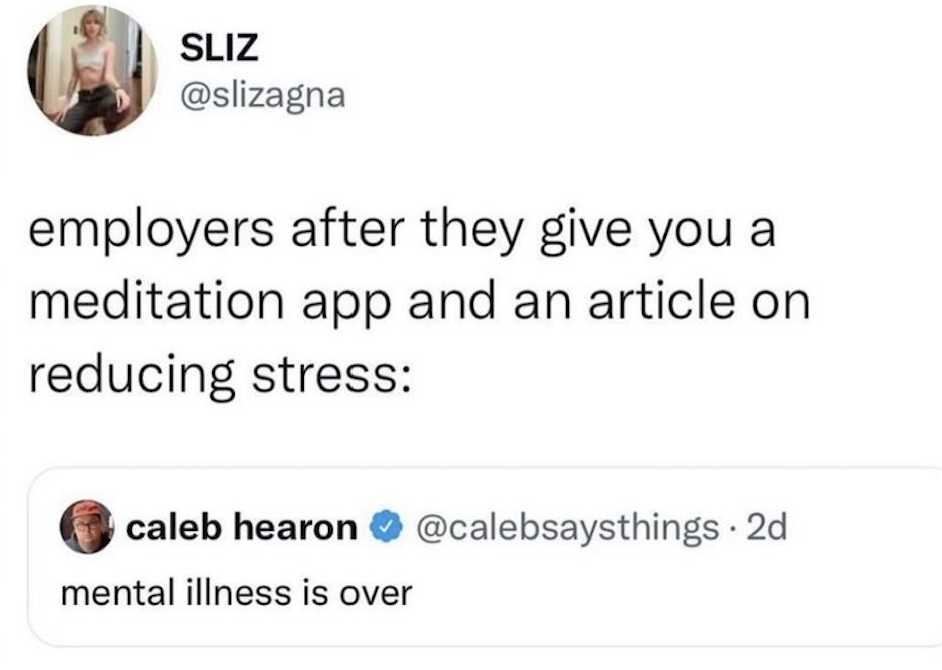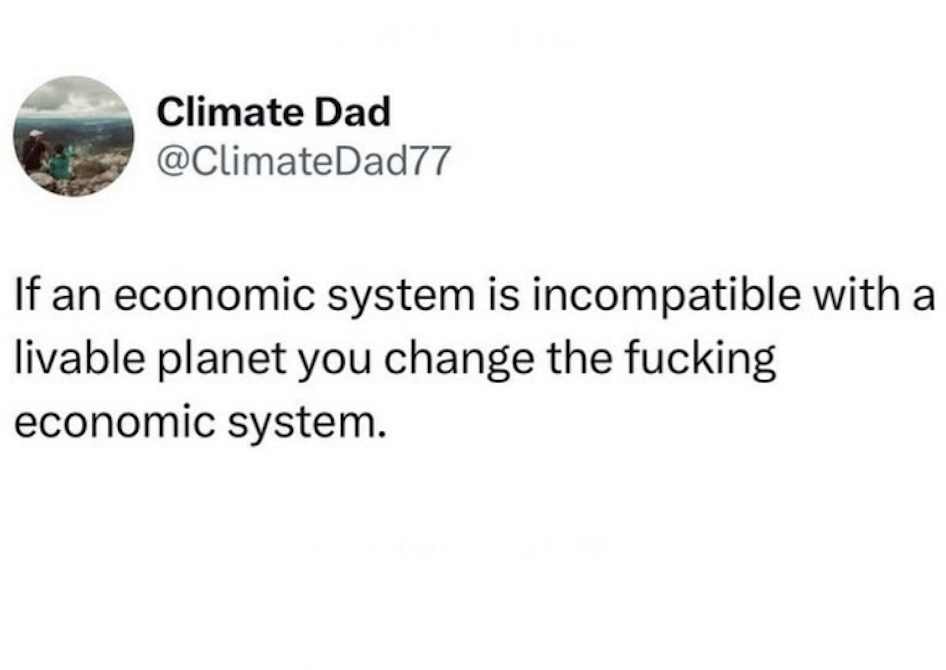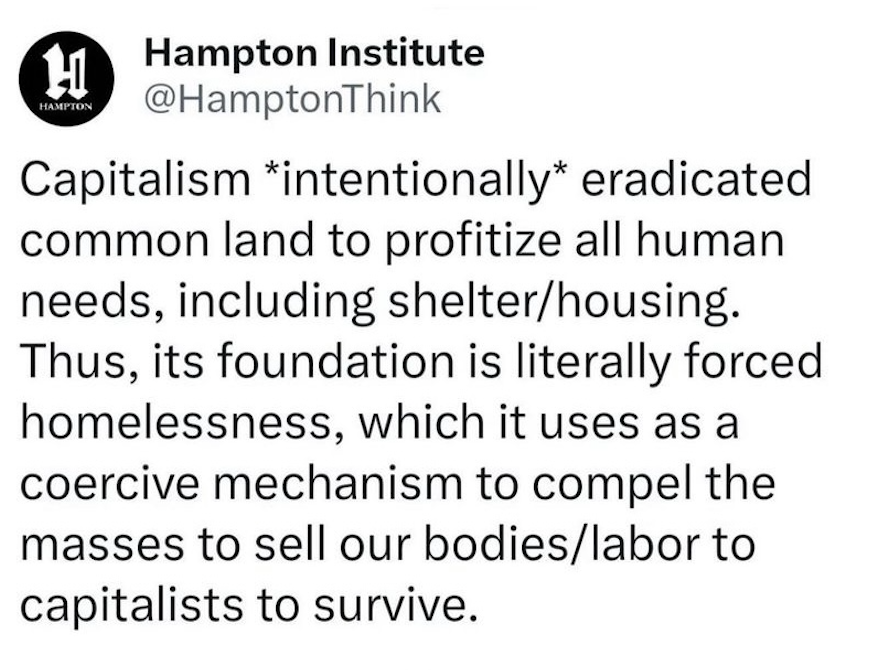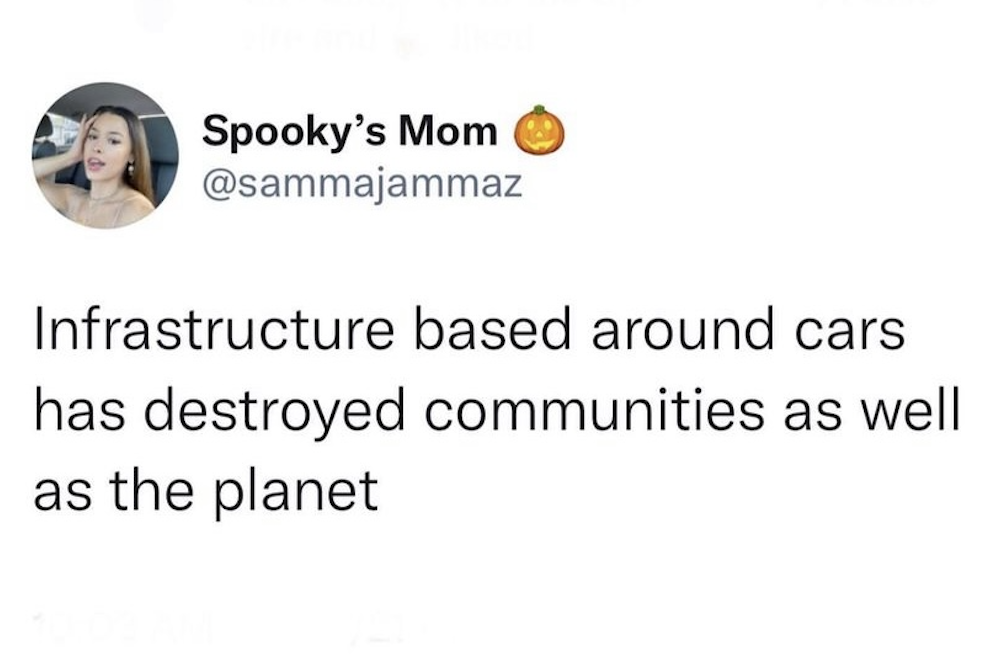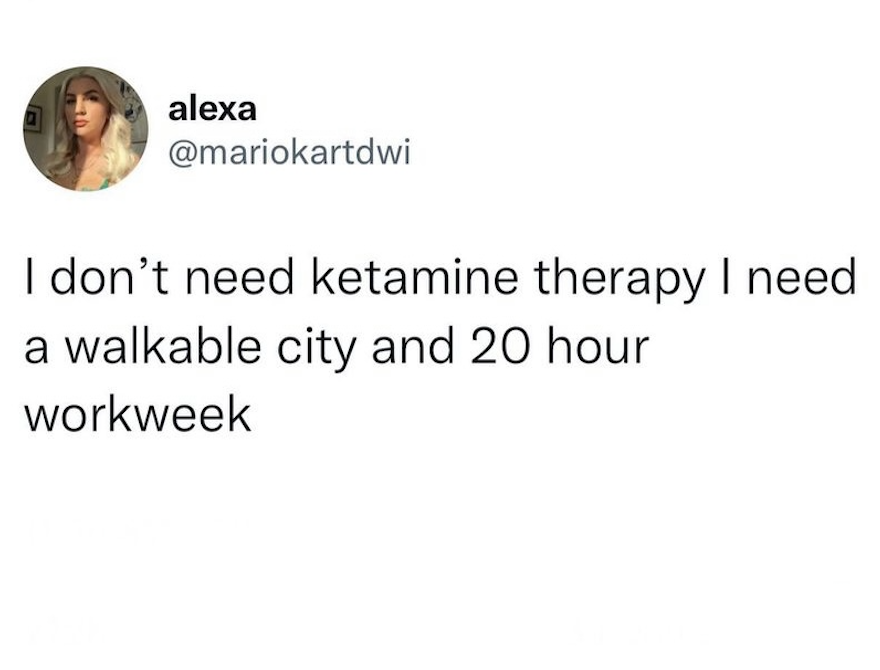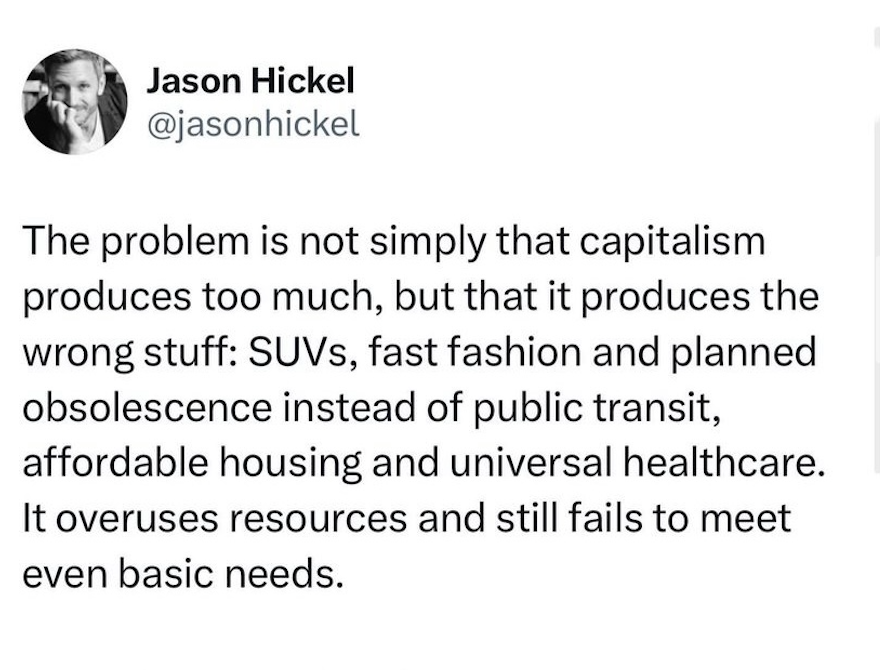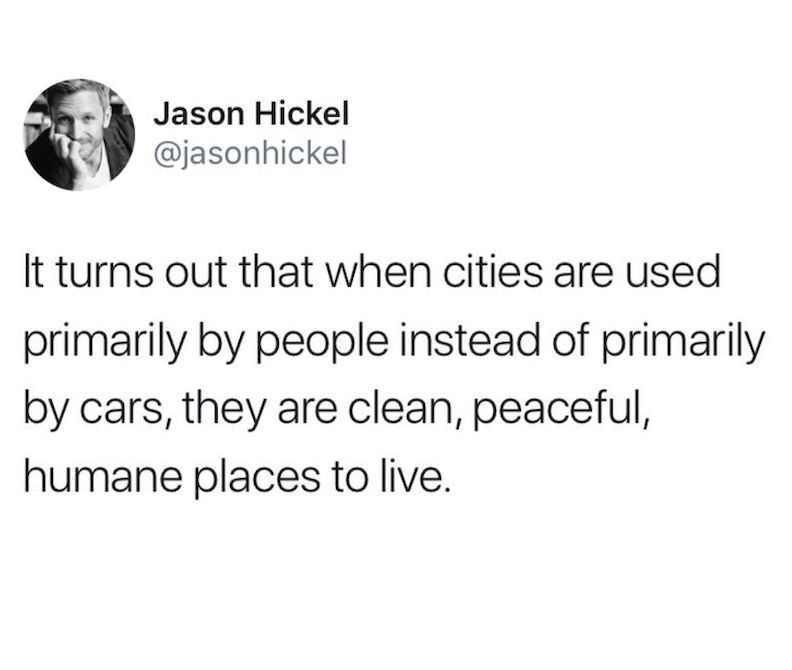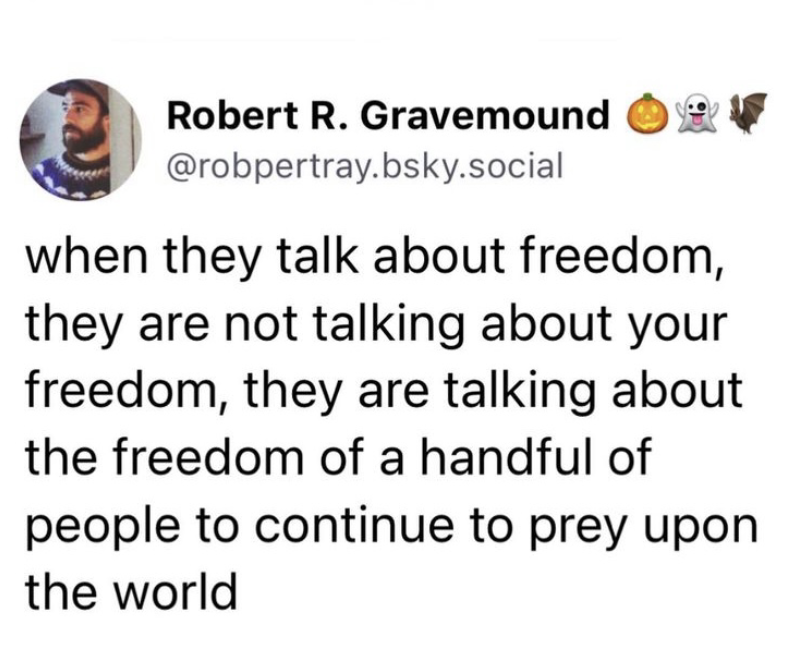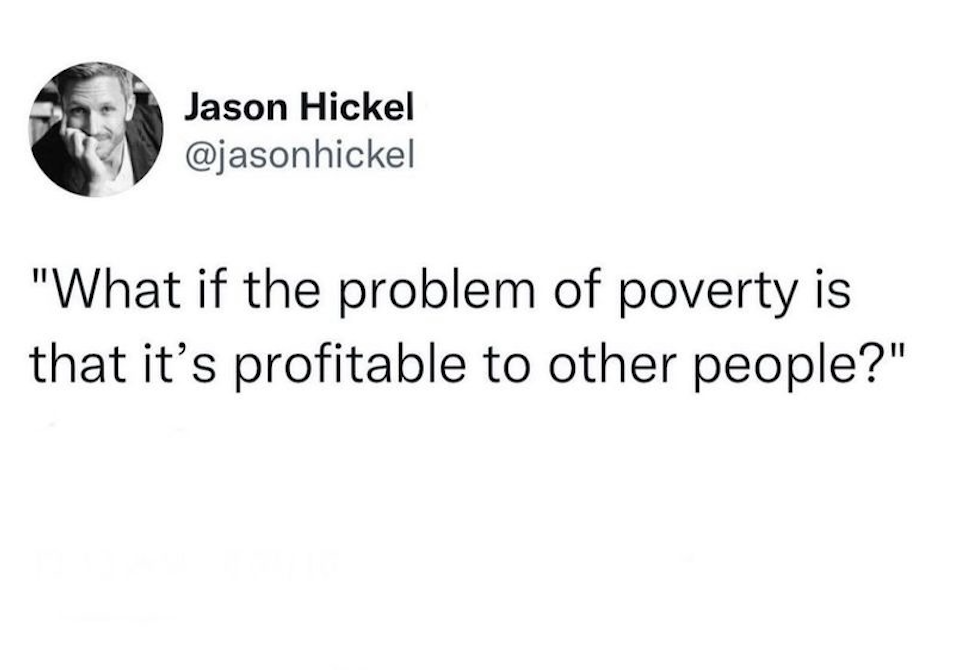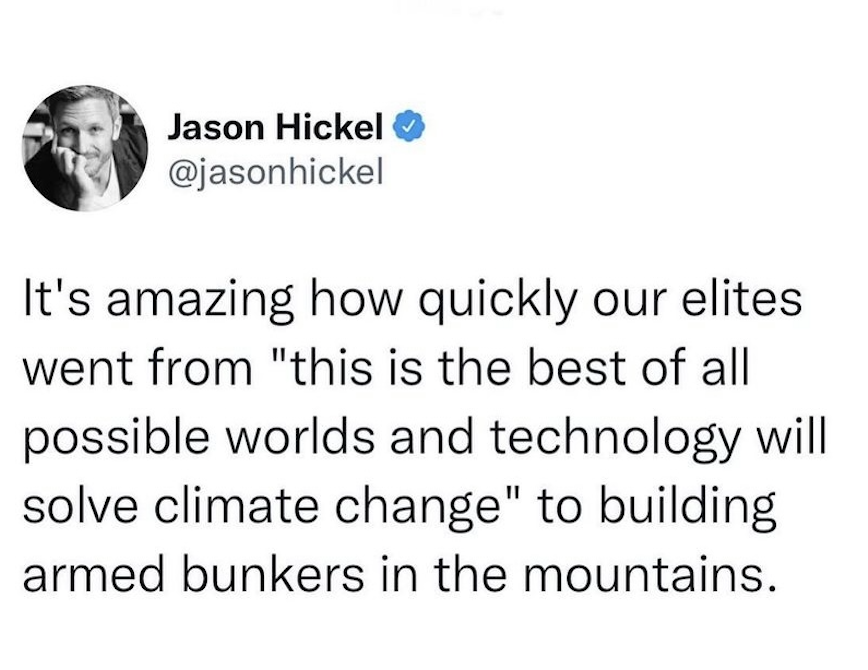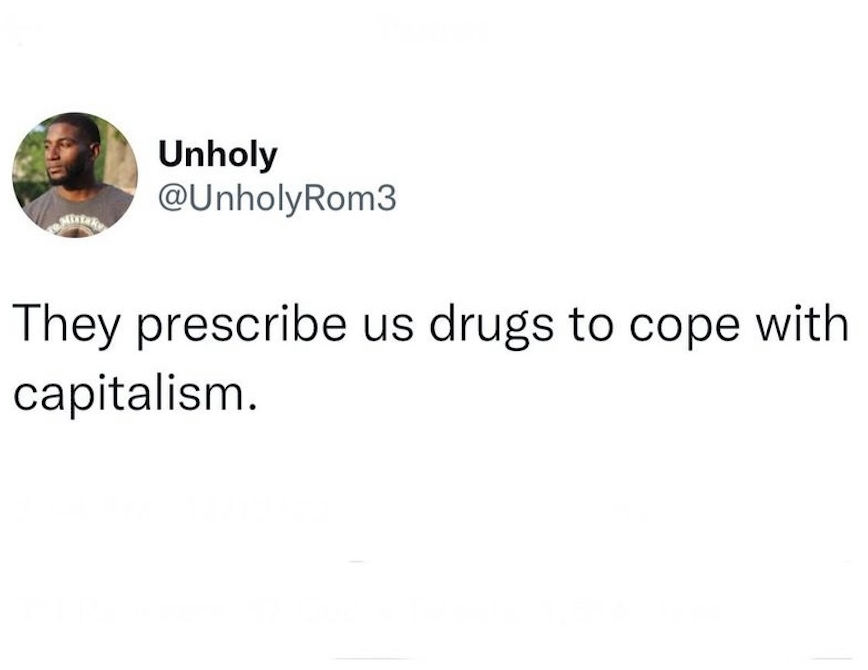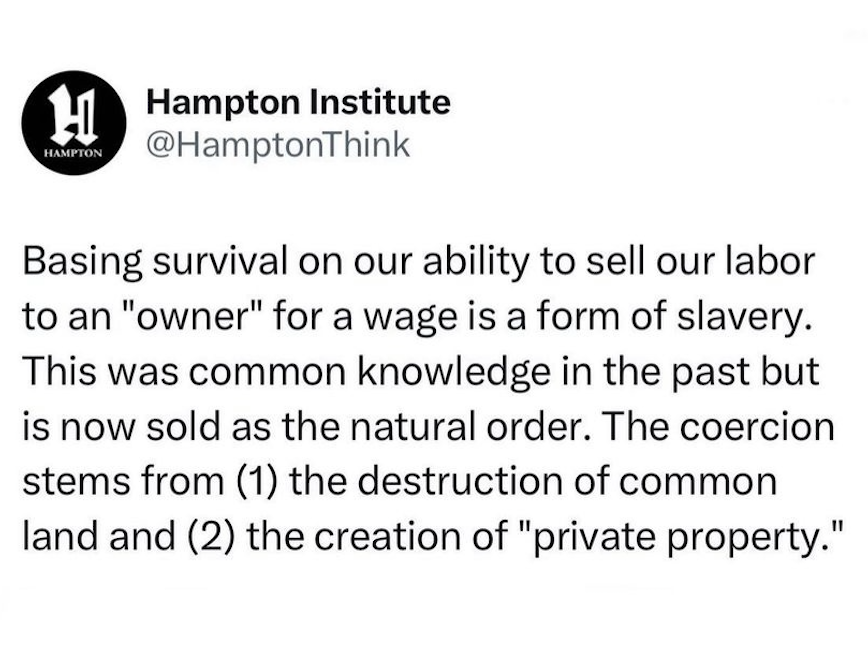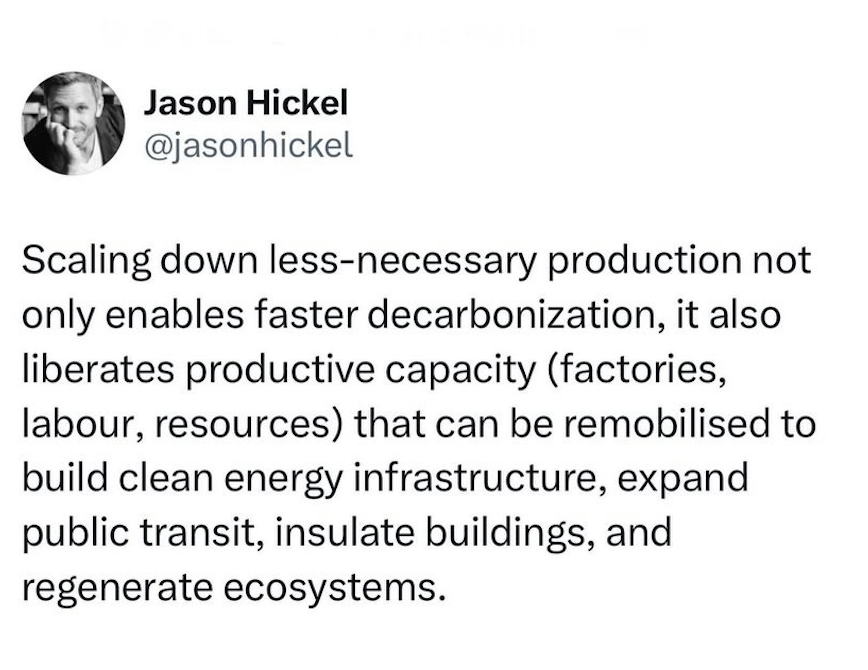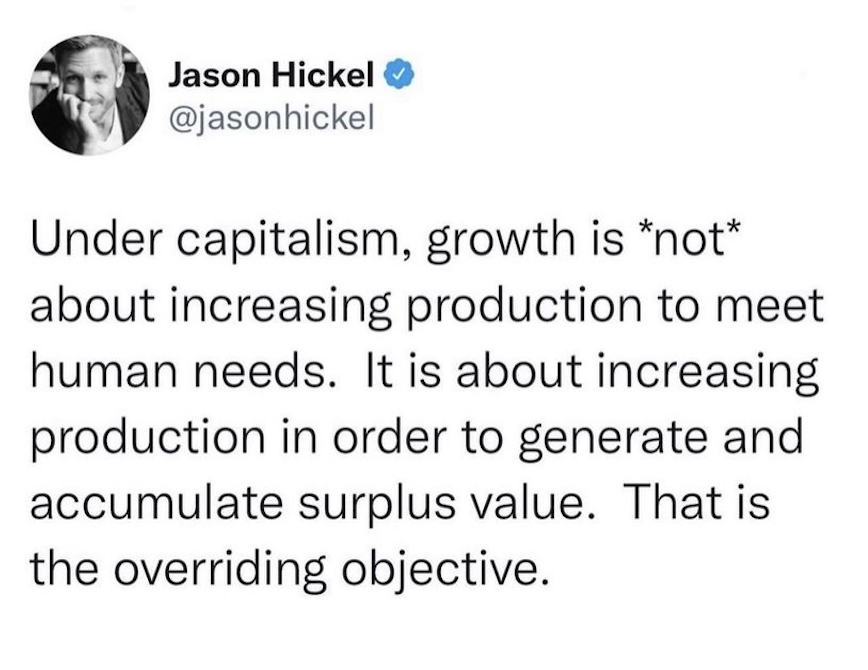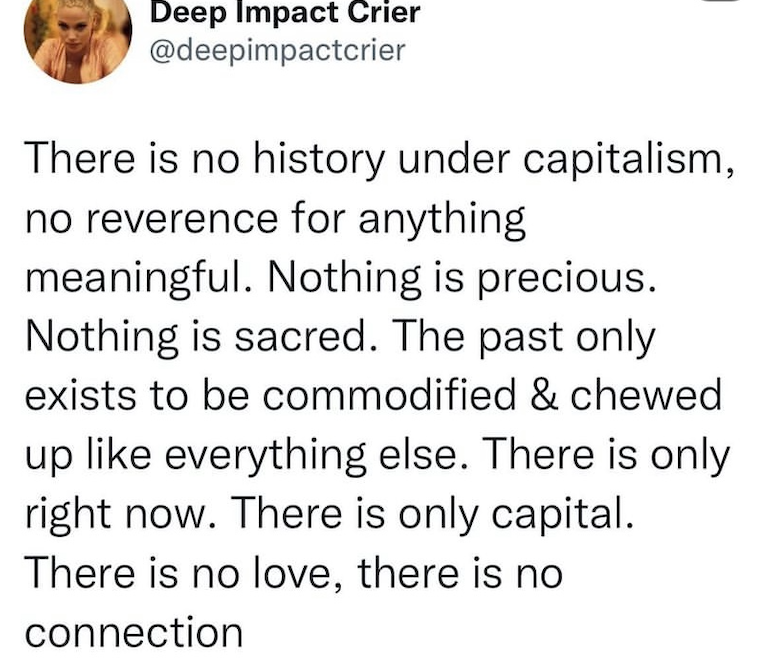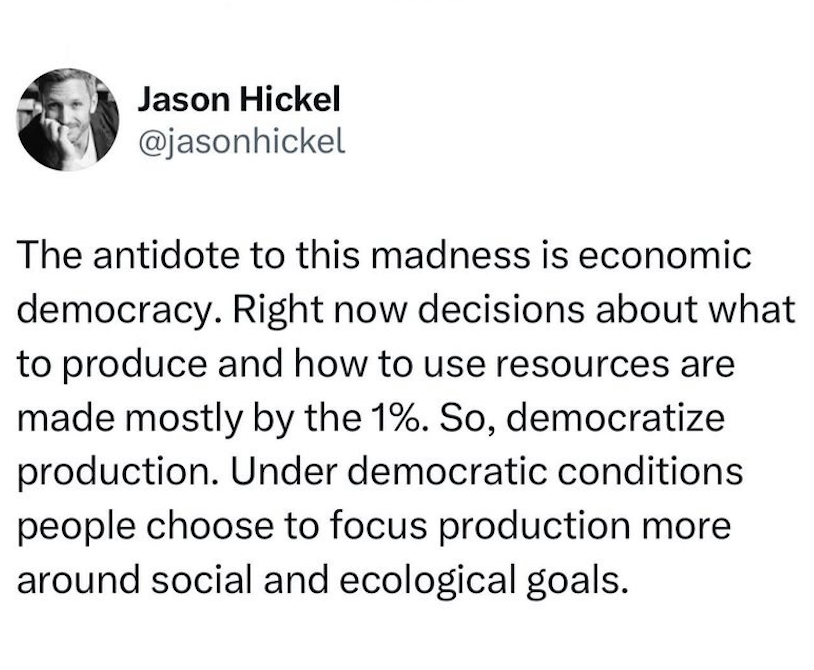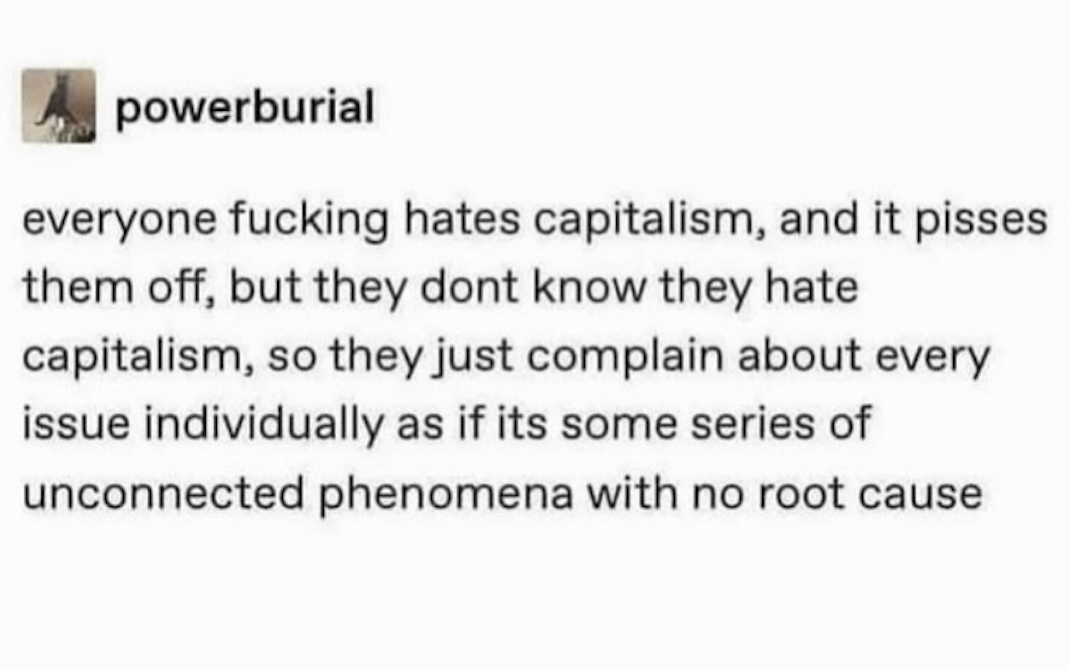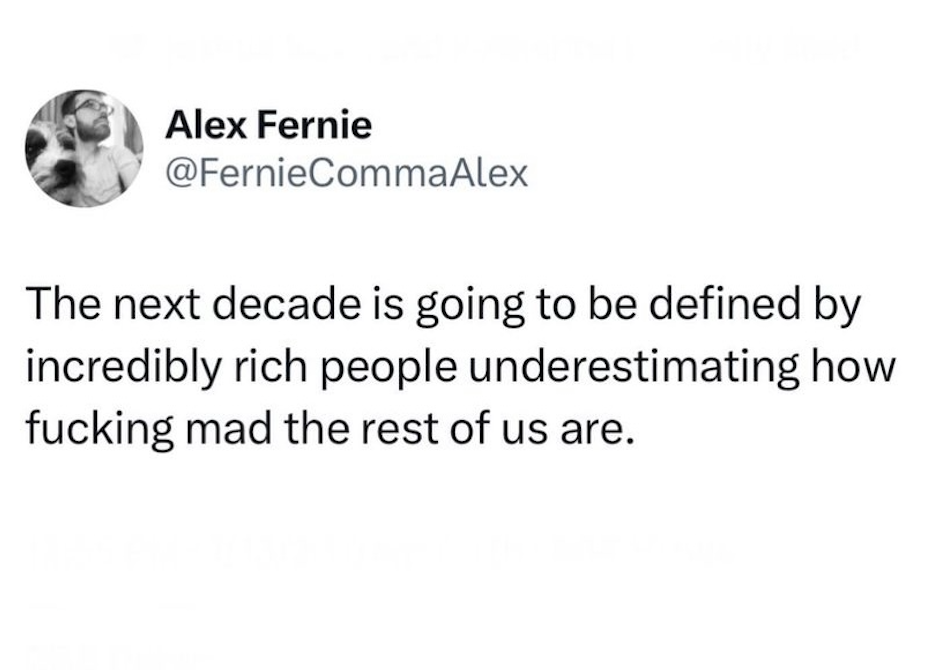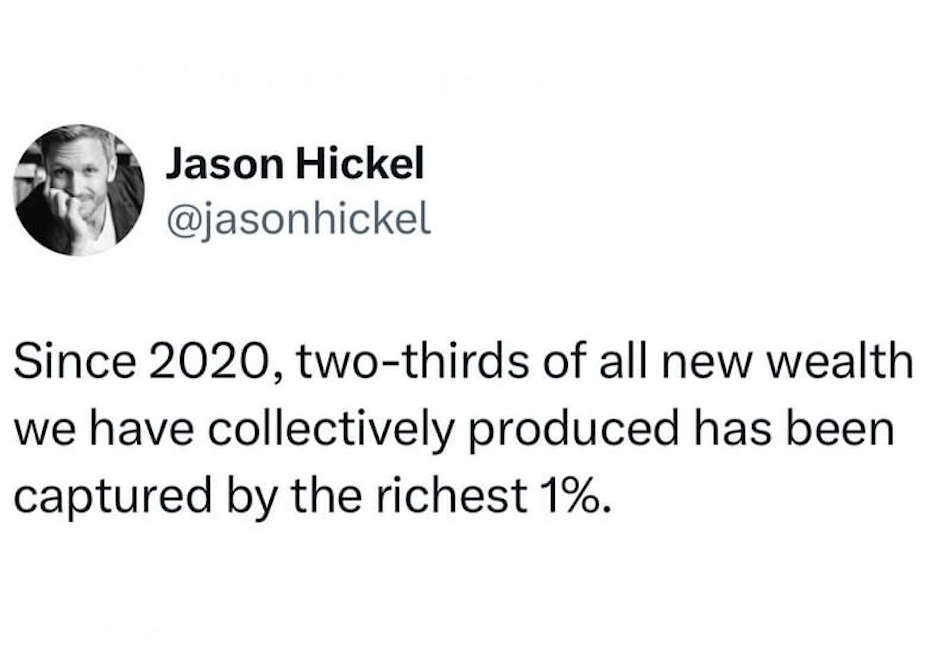Intro
“The
chainsaw is a
remarkable invention that
enables loggers to fell
trees, say, ten times faster
than they are able to
do by hand. But logging companies equipped with chainsaws don’t let their workers finish the job
early and take the rest
of the day off. They get them to cut down ten times as many trees as before.”
(p.153
of
Less Is
More by Dr Jason Hickel)
WHAT IS DEGROWTH?
In the same way that loggers are forced to continuously cut down more trees to increase profit, capitalism only survives by constantly increasing the amount of goods and services produced. It does so, despite the fact that human well-being does not necessarily improve when a country “grows” its economy.
Compare Costa Rica and the U.S. for example: while Costa Rica’s GDP per capita is a mere $11,000 (less than ⅕ of the U.S.), its people no longer live in extreme poverty. Instead, Costa Ricans enjoy high levels of nutrition, life expectancy, education, sanitation, access to energy, and as a result, better standards of well-being than North Americans,1 who bizarrely have the highest GDP in the world.
Rather than assuming that all sectors of the economy need to grow all the time–regardless of whether we actually need them to–degrowth advocates for “a planned downscaling of energy and resource use to bring the economy back into balance with the living world in a safe, just and equitable way”. 2
Ironically, continuously “growing” the economy does not mean everyone gets more. On the contrary, it means the income gap between the richest and poorest widens: since 2020, ⅔ of all new wealth we have collectively produced has been captured by the richest 1%. This, while 60% of the world cannot access their basic needs. 3
Why do we need degrowth?
Capitalism is not just socially unfair, but environmentally destructive.
Scientists have identified nine planetary boundaries that have maintained Earth's stability over the past 10,000 years. However, because of overproduction under capitalism, specifically by high-income nations, we have already crossed six of these planetary boundaries in the last 100 years.* Apart from climate change, these include the decline in biodiversity, land destruction, freshwater depletion, nitrogen and phosphorus contamination, and the introduction of new substances like chemicals and plastics into the environment. 4
What’s worse, claims that economies can keep growing, but in an environmentally friendly way (“green growth”) are unfortunately not the solution. In short, a growing economy means a growing ecological footprint. We need to decide what we want: system change or climate change?
What does it promote?
Degrowth promotes economies organised around well-being instead of capital accumulation.
This will result in shorter working weeks, green job guarantees, and alternative business models, such as not-for-profits.** Most importantly though, degrowth advocates for social equality, strengthening communities, sharing resources and a stronger investment in public services (transport, education, health care, housing) for all.
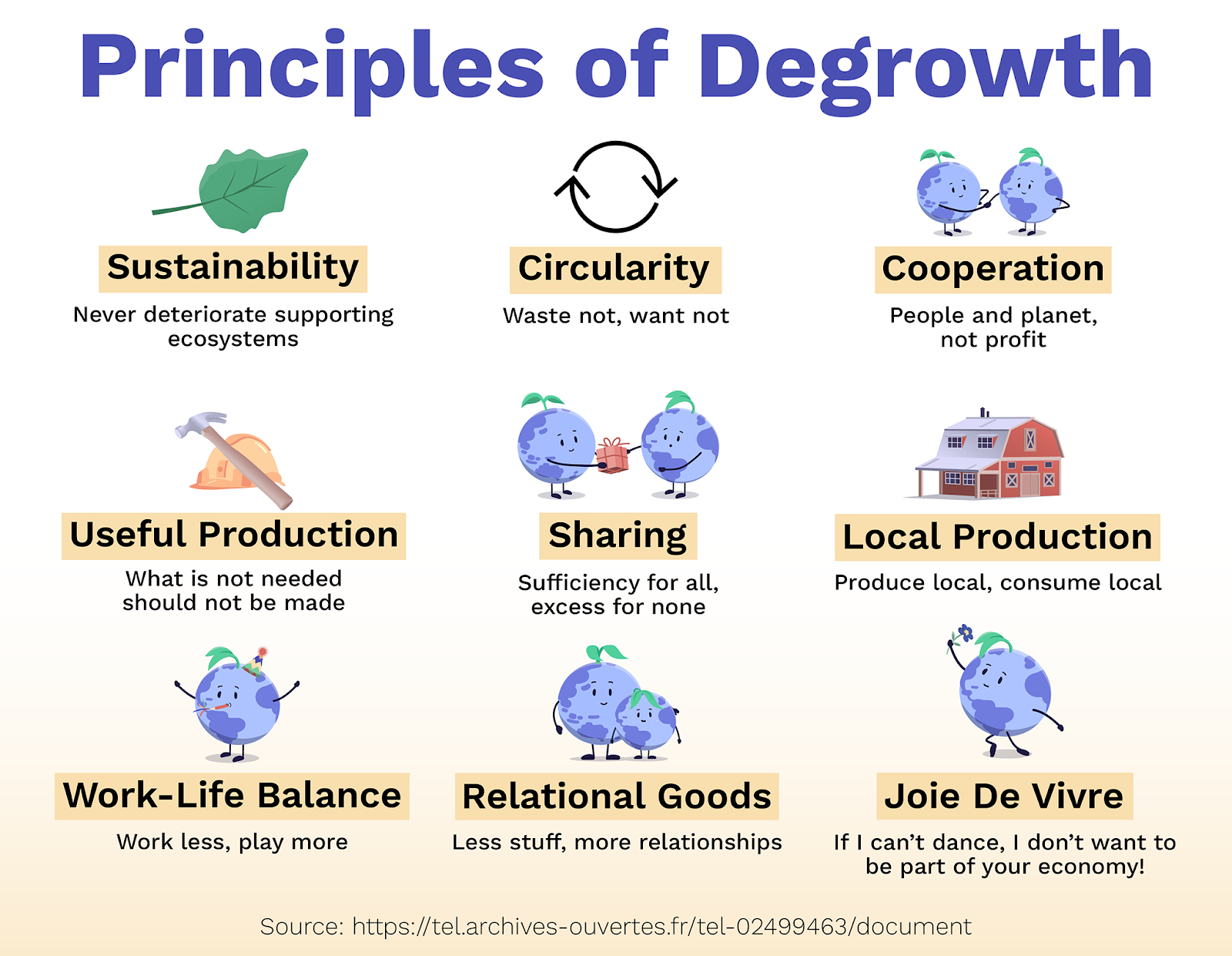
How can I help?
Educate yourself, put up flyers, get active on social media and in your community. If you're in Australia, join Degrowth Network Australia (email and Instagram), otherwise join or start a degrowth network wherever you're based. The world needs you!
1 O'Neill, D. W.,
Fanning, A. L., Lamb, W. F., & Steinberger, J. K. (2018). A good life for all within planetary
boundaries. Nature Sustainability, 88–95.
2 Hickel, J. (2021). What does degrowth mean? A
few points of clarification, Globalization, 18/7, 1105-1111.
3 Data by World Bank and Oxfam International:
Richest
1% bag nearly twice as much wealth as the rest of the world put together.
4 Katherine Richardson et al. (2023). Earth
beyond six of nine planetary boundaries. Science Advances, Vol. 9, no. 37.
* This is why proponents of degrowth are clear that it is
particularly high-income nations that need to do degrow the most.
** It’s important to point out that a
not-for-profit is not
capitalistic: capitalism extracts profits while NFPs circulate
profits. Most people think of capitalism as markets, businesses and trading, but they are harmless
in itself. Those
things have been around for thousands of years while capitalism is only 500 years old.


